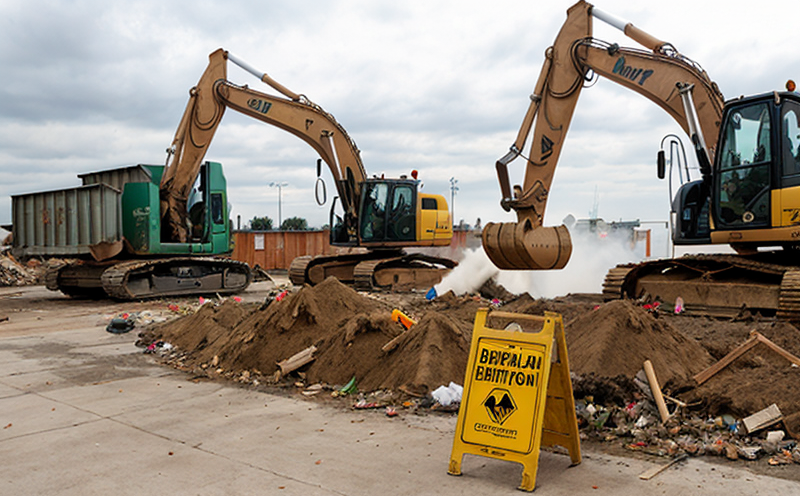ASTM D8301 Gypsum Content in Demolition Waste
The ASTM D8301 standard test method is pivotal in determining the gypsum content in demolition waste materials. This service ensures accurate and reliable measurement of calcium sulfate dihydrate (gypsum) within construction and demolition debris, which is critical for proper recycling processes and material reuse.
Understanding gypsum content in demolition waste is essential for several reasons. Gypsum can be a valuable component in the production of new building materials such as drywall or plasterboard if it meets certain purity standards. However, excess gypsum in recycled aggregates can negatively impact their performance, particularly when used in concrete mixtures.
Accurate measurement using ASTM D8301 helps clients make informed decisions about how to manage and recycle their waste streams, ensuring compliance with environmental regulations while optimizing resource recovery. By providing precise data on the gypsum content, our laboratory ensures that only suitable materials are reintroduced into the manufacturing cycle, thus minimizing adverse effects on product quality.
The testing process involves several steps: first, the demolition waste sample is prepared by crushing it to a defined particle size range; then, gravimetric methods or X-ray diffraction techniques may be employed depending on the required precision. After analysis, results are reported according to ASTM D8301 guidelines, providing clear thresholds for acceptable gypsum levels in recycled products.
Our team of experts uses state-of-the-art equipment and follows rigorous protocols to ensure accurate testing every time. This service supports various stakeholders involved in waste management and recycling industries, including construction firms, environmental agencies, and material suppliers.
| Test Parameter | Description |
|---|---|
| Gypsum Content | The percentage of calcium sulfate dihydrate present in the demolition waste sample. |
| Purity Levels | Specific thresholds for acceptable purity levels based on ASTM D8301 standards. |
| Sample Preparation | Crushing to a specific particle size range prior to analysis. |
| Analytical Methods | Gravimetric or X-ray diffraction techniques used for quantification. |
By leveraging ASTM D8301, our laboratory offers a comprehensive solution tailored to meet the needs of clients in the waste management and recycling sector. This service plays a crucial role in promoting sustainable practices by facilitating informed decision-making regarding material reuse and compliance with relevant standards.
Quality and Reliability Assurance
- Use of state-of-the-art laboratory equipment ensures precise measurements.
- Rigorous adherence to ASTM D8301 protocols guarantees consistent results.
- Trained and certified analysts provide accurate interpretations of findings.
- Digital reporting systems ensure timely delivery of comprehensive reports.
To maintain high standards, our laboratory participates in proficiency testing programs recognized by international bodies such as A2LA (Accreditation Laboratory) and ISO/IEC 17025. These programs validate the accuracy and reliability of our test methods through regular audits and performance evaluations.
Environmental and Sustainability Contributions
By accurately measuring gypsum content in demolition waste, this service supports several environmental goals. Proper management of gypsum-containing materials reduces landfill volumes, conserves natural resources, and decreases the carbon footprint associated with manufacturing new construction products.
Through our testing services, we contribute to circular economy principles by enabling effective recycling practices that reuse valuable components like gypsum without compromising product quality or environmental impact.
Use Cases and Application Examples
| Use Case | Description |
|---|---|
| Construction Firm Compliance | A construction company may use our service to ensure compliance with local regulations regarding gypsum content in recycled aggregates. |
| Material Supplier Quality Control | A supplier of recycled building materials can utilize this test to verify the quality and purity of their products before marketing them for various applications. |
| Environmental Agency Monitoring | An environmental agency might employ our testing capabilities to monitor compliance with waste management policies across different construction sites. |
Our service also aids in product development by providing insights into how varying gypsum contents affect the performance of recycled materials. This knowledge can guide improvements in manufacturing processes and formulations, ultimately leading to enhanced sustainability outcomes.





